i have the solution for you.
toss that motor in the trash. go buy a used treadmill off craigslist for 100 bucks or less.
take out the motor(about 1 horsepower) and the controller. there are tons of videos on youtube that show you how to make this work. they are mostly geared toward lathes but you are a smart guy so you can adapt it to this project with ease.
here is a youtube vid of my mini lathe/mill that i repowered with a DC permenant magnet motor.
in my case, i bought the motor and controller new off ebay. i have about 120.00 invested in the complete conversion.
Converting Drill Press to Variable Speed
Collapse
X
-
Just for kicks, here's a brief summary of the drill press story.
It was living in a retired model maker's basement, in a coastal area with a lot of rain.
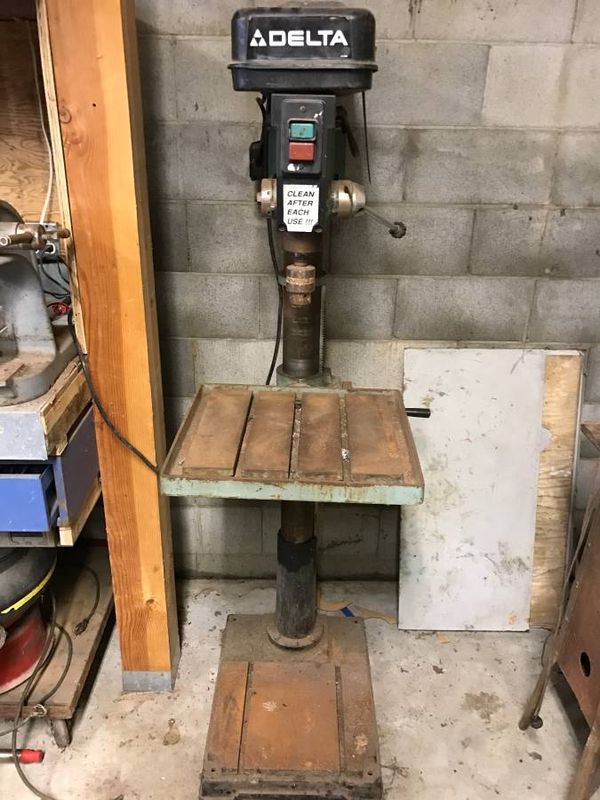
It was fully stripped and everything was cleaned over the course of a few weeks. The small bits went into jugs of white vinegar, and the larger pieces were soaked/scrubbed in a concrete mixing tub that I filled with vinegar. The acid is mild and does not mess things up, and since I was not in a big hurry, it was fine to let it do its work on the rust over time. Also, brass brushes and window scrapers were key.
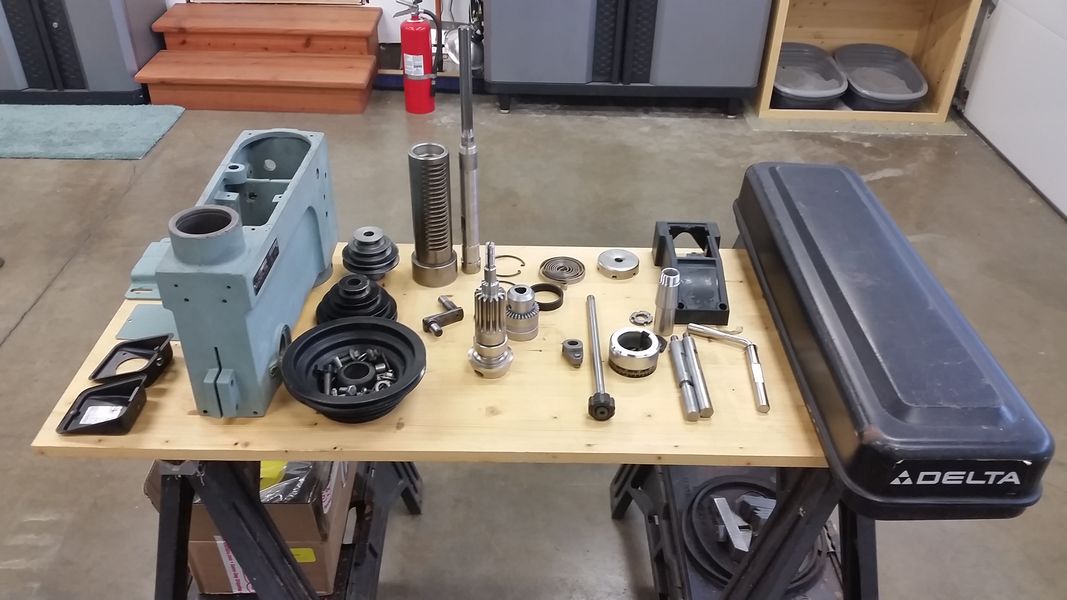
The spindle (above) got all new SKF bearings, as did the motor. It was pretty gross inside, full of sawdust. It also needed a new starting capacitor.
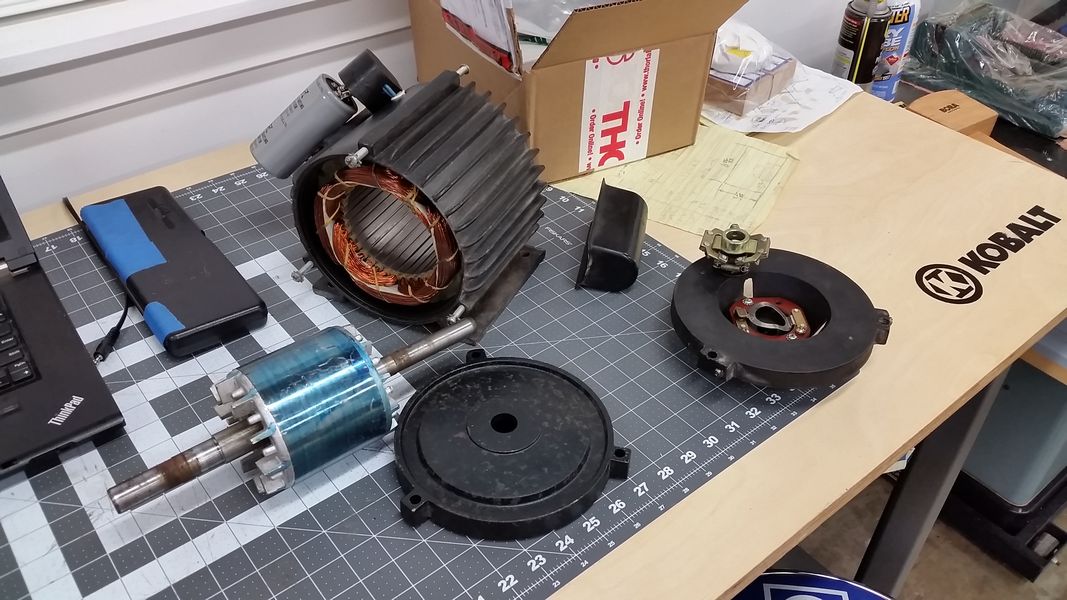
Here it is reassembled.
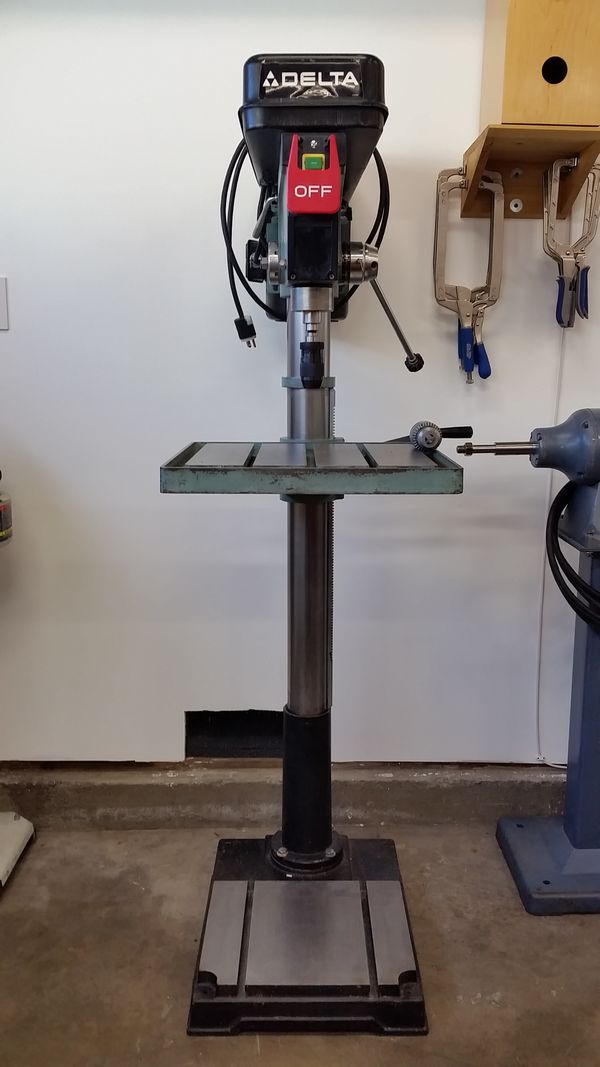
With a shiny new keyless chuck.
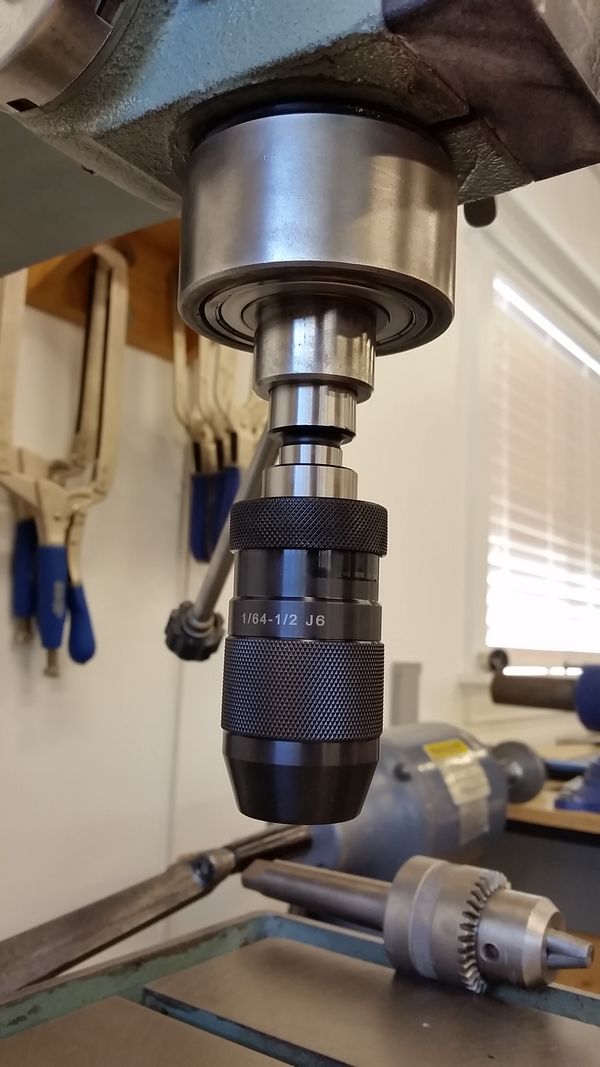
I later rewired it for 240V and stuck a 15ft 10ga SJOOW cord on it. The casting which holds the handles was all stripped out, so I bored the holes out to the next larger thread size and turned some new ones. McMaster knobs in red were the finishing touch.
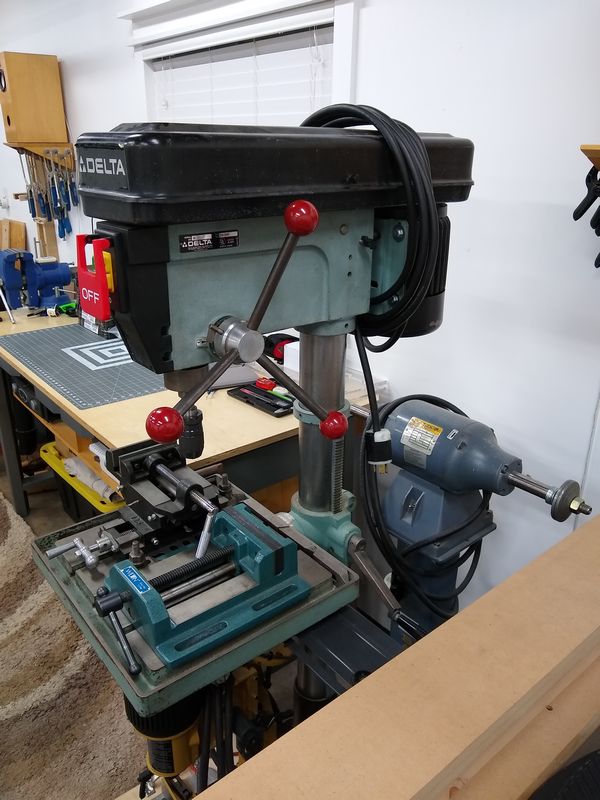
So this is the thing I am thinking of wasting a bunch of money on to make it into a variable speed system.Leave a comment:
-
Converting Drill Press to Variable Speed
First, I am not trying to optimize for cost or whatever here, but just having some fun with one of my home workshop's tools which gets periodic use. If I was really concerned, I would just go buy a factory VS drill press. This is mostly for fun and to see what all I can do (much like most of us and our E30's).
The press is an older Delta 12 speed from the mid 1990's, model 70-200. A couple of years ago I picked it up on Craigslist for cheap, and then spent a month pulling it completely apart to de-rust everything, press in all new spindle bearings and put proper lubrication on all sliding surfaces. The keyless chuck I picked up on McMaster cost almost as much as what i got the whole thing for lol, and after the rebuild I was indicating <0.001" runout on the spindle. So, more than good enough for a home shop drill press. That reminds me that I was going to post a rebuild-pics thread on here.....
Anyway, the belt changing is annoying, and the speed range is sort of limiting. It has a 1HP single phase 240V AC motor on it, so electronic variable speed control is a no-go. I have been looking at options, and there are a few routes to go with this.
1) Find a used 3Ph motor and run it on a VFD. 3Ph motors have marginally-OK variable torque characteristics as speed if varied, and are about as quiet as a single phase AC motor. The non-linear torque curve is a no-go though.
2) Brushed DC motor. There are "2HP" treadmill motors all over eBay and stuff for cheap, and some guys out there have used them to make VS drill presses and bandsaws. Some come with the treadmill speed control boards, of which many seem to be standard and are documented to varying degrees. They are all SCR-based controls, which I dislike because they are noisy, both electrically and acoustically. Brushed motors are already noisier than AC motors, and an SCR control would not help. There are some PWM controllers for DC motors out there for under $400, so that would make it a little better. Brushed DC motors have decent speed-torque curves.
3) Brushless DC motor. There are plenty of 1000-2000W "rated" BLDC motors with Hall sensors out there new for decent prices, and the speed controllers are cheap'ish (reversing ones with closed-loop operation). I'd just need a beefy 48V AC-DC converter, which is not too hard to find. BLDC motors seem to have some of the best torque-speed characteristics of the various motors types out there, and they are fairly quiet.
Right now I am leaning toward option 3. A local store has some $150 BLDC motors rated for 48V input and 1600W output, with integrated Hall effect sensors on all 3 phases. The original AC motor is ~750W (1HP), but it delivers a bit more torque at its rated RPM, so I need something rated a bit higher. They also sell a $100 speed control which supports forward+reverse operation and braking (and braking is SUPER useful when drilling dozens of holes with material setup in between). The motor and stuff are these (no affiliation to the business, etc):
https://electricscooterparts.com/motors48volt.html Item # MOT-481600BLDC
https://electricscooterparts.com/spe...ers48volt.html Item # SPD-481500BLDC
https://www.alliedelec.com/product/m...0-48/70230351/ - 1500W 240VAC to 48VDC power supply
I can machine up all of the necessary mounting brackets and stuff. Right now it has an intermediate pulley and uses 2 V-belts. I think that I should be able to just run a single longer belt between the motor and spindle pulley. The ratios possible in this conversion with the stock pulleys are not really optimal since they would be lower than 1:1 (spindle speed < motor speed), and I am really shooting for up to a 5000RPM spindle speed for when I want to drill really small holes in PCBs and aluminum. McMaster sells V-belt pulleys, so I could machine an motor shaft adapter for the one I need to work with the spindle pulley's smallest slot, and then machine off as much of it (the giant triple spindle pulley) as I can to reduce the amount of mass the motor has to accel/decelerate. The whole thing will have more than enough inertia for smooth operation, and I can get it balanced if needed at a local shop.
Thoughts? If this somehow works out well, I am doing the same thing to my Powermatic bandsaw. The blade speed is high for cutting wood, but it would be the bee's knees to be able to run metal on it too.Tags: None


Leave a comment: